With AI now capable of large-scale data analysis, forecasting, and multi-format content generation, what role remains for marketing professionals? To explore this question and more, Mediamax spoke with Dr. Ana Cruz, Assistant Professor in Marketing at the University of York Europe Campus CITY (as of now, CITY College).
In this interview, she shares invaluable insights into the technological transformation of the industry, the timeless principles of marketing, and how high-quality education can shape marketers into capable drivers of AI-powered tools.
Dr. Ana Cruz is a multiple award-winning marketer, researcher, and Fellow Higher Education Academy (FHEA). She has been lecturing at the University of York Europe Campus CITY since 2010 across Executive MBA, undergraduate, and postgraduate levels.
University of York Europe Campus CITY offers a wide range of undergraduate and postgraduate programs. Armenian applicants benefit from tuition discount system while gaining access to a high-quality British education through studies based in Thessaloniki, Greece.
In addition, the Pan-European Executive MBA program, jointly offered by the University of York Europe Campus and the Faculty of Economics and Management at the University of Strasbourg, provides Armenian applicants with the opportunity to receive high-quality British and European education and two MBA diplomas from York and Strasbourg Universities, while continuing to live, work, and study in Armenia.
- Dr. Cruz, AI rapidly reshapes industries and marketing is no exception. What do you see as the most significant shifts AI is bringing to the marketing world?
- The exponential AI development and adoption is not just a technological upgrade; it is a paradigm shift in how we understand and engage with consumers and customers.
There are several significant shifts in hyper-personalization, predictive analytics, automation, content generation and how services are delivered. AI algorithms can now analyze vast datasets at speeds impossible for humans, allowing for real-time insights into consumer behavior, preferences, and even emotional states. This has moved us beyond broad segmentation to truly individualized marketing experiences, where products, services, experiences and messages are tailored with unprecedented precision.
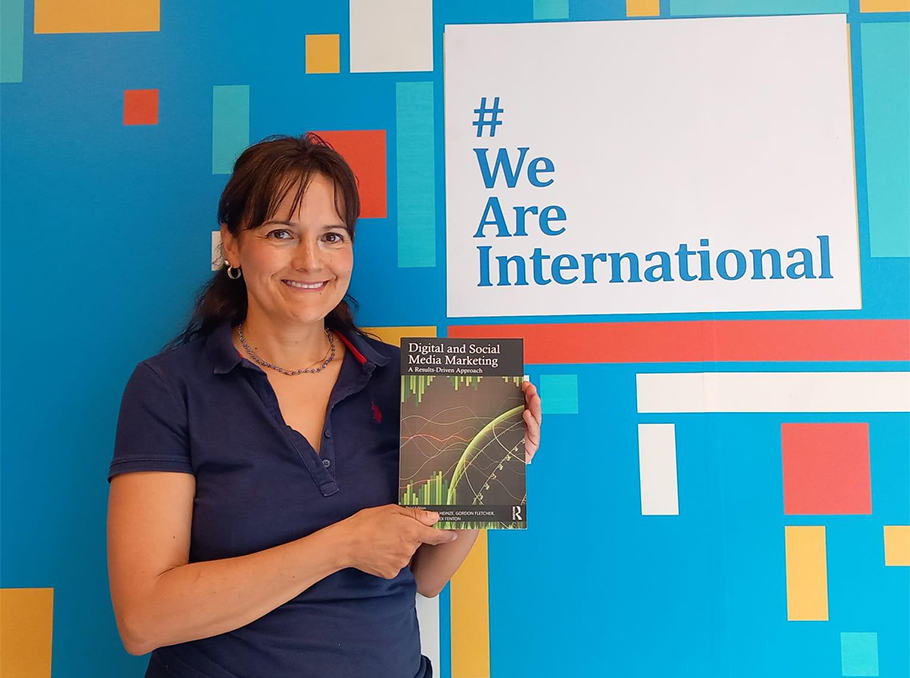 Dr. Ana Cruz
Dr. Ana Cruz Photo: personal archive
AI's predictive capabilities are revolutionizing forecasting and strategic planning. Marketers can now anticipate future trends, identify potential churn, and optimize campaigns before they even launch. This proactive approach, fuelled by machine learning models, significantly enhances efficiency and ROI. For example, according to Statista, the global revenue from AI in marketing is projected to skyrocket from $27.4 billion in 2023 to $107.4 billion by 2028, reflecting this profound impact.
Finally, generative AI is transforming content creation, automating everything from email copy and social media posts to visual assets, enabling marketers to scale their output and focus on higher-level strategic thinking. This shift means less time on repetitive tasks and more on creative ideation and strategic oversight.
These transformations are not only revolutionizing marketing; they are and will revolutionize the nature of work as we know it.
- While tools and trends evolve, some foundations stay firm. In your view, what core principles of marketing will remain timeless?
- At its core, marketing is about understanding human needs, building authentic connections, and delivering genuine value.
Ethics and corporate social responsibility must remain top of the agenda – especially in permanent crisis where fakes and fraud are on the raise. This means that ultimately brands that people can trust will be rare as it will be more difficult to distinguish between what is true and what content and messages are fake.
The principle of customer-centricity remains key. AI may provide unparalleled insights into customer behavior, but it is the human marketer who truly empathizes with customer pain points and aspirations, translating data into meaningful solutions.
 Dr. Ana Cruz
Dr. Ana Cruz Photo: personal archive
The questions at the core of marketing – Who is your customer? What value are you delivering? How are you different or better than your competition? – remain the same. However, the answers may be different nowadays: Is the customer a human? An AI? Hybrid? It can be confusing, and it highlights the challenges we have ahead. As marketers we need to understand who our customer is and what marketing principles remain unchanged while having the capacity to change and adapt to extremely rapid technological changes.
Another timeless principle is value proposition clarity. In a world saturated with information, cutting through the noise with a clear, compelling, and differentiated offer is more critical than ever. AI can help optimize messaging, but the fundamental articulation of why your offering matters to a specific audience remains a human endeavour.
Brand storytelling and authenticity will always distinguish leading brands. While AI can generate narratives, the emotional resonance, cultural nuance, and ethical foundation of a brand's story must originate from human creativity and values. People connect with stories, emotions, and authenticity – not robotic marketing messages. As we embrace AI, the human touch, particularly in fostering trust and loyalty, becomes even more precious.
The words that Steve Wozniak, co-founder of Apple, said in an interview resonate with me and are very relevant here. He said, “I have AI, Actual intelligence”. This means one core aspect that should remain and be fostered and further developed in people (not only marketeers) is the ability to think critically, creatively, empathetically and to question.
- You have led award-winning campaigns across sectors, including sustainability and construction. If you were to create a marketing campaign with an AI tool today, what role would you assign it – and what would you keep strictly human?
- Having spearheaded diverse campaigns, I see AI as partner, not a replacement. If I were to design a marketing campaign with an AI tool today, I would primarily assign AI the role of data analysis, optimization, content augmentation and automation. AI would be responsible for processing vast amounts of consumer data, identifying nuanced behavioural patterns, predicting market trends, and optimizing ad spend in real-time.
For a sustainability campaign, for instance, AI could analyze public sentiment around environmental issues, identify key opinion leaders, and pinpoint the most effective channels for reaching specific demographics with eco-conscious messaging. It would also generate different content variations for A/B testing and automatically scale the most successful ones.
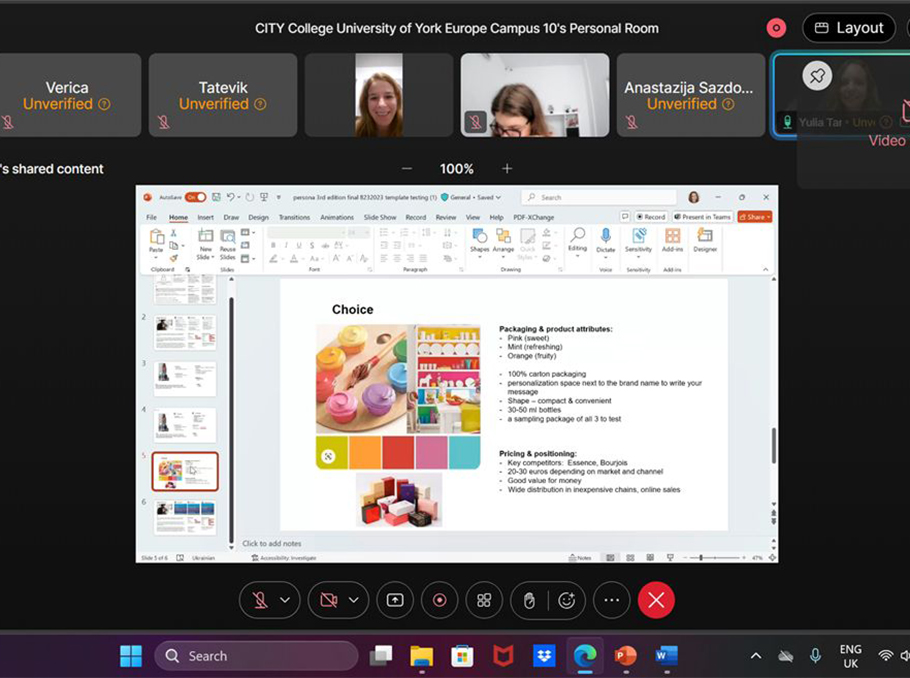
Photo: personal archive
However, the strategic vision, emotional storytelling, and ethical oversight would remain strictly human. My team and I would define the overarching campaign objectives, craft the core narrative that resonates deeply with the target audience, and ensure the campaign aligns with the brand's values and ethical commitments. The human element would be crucial in translating AI-derived insights into genuinely compelling and authentic communication. We would also be responsible for understanding cultural nuances, fostering genuine emotional connections, and handling crisis communication – areas where AI currently lacks the necessary empathy and intuitive judgment. AI would handle the "what" and "how much," while humans would direct the "why" and "how" taking a careful consideration on potential risks and limitations.
- You emphasize personal branding in your work. In a time when students can ask AI to write their bios, build their portfolios – how do you teach them to stay authentic?
- The rise of AI tools in personal branding presents a fascinating paradox: while they can streamline content creation, they also risk diluting authenticity. Teaching students to navigate this requires a strong emphasis on self-reflection, critical evaluation, and a deep understanding of ethical principles.
First, I encourage students to view AI as a tool for ideation and efficiency, not a substitute for their unique voice and experiences. Before engaging with AI, I challenge them to articulate their core values, aspirations, and genuine narrative. AI can then help refine their message, but the essence must come from within.
With a staggering number of large companies now adopting AI in their recruitment, screening and on boarding processes it is important students know how to optimise their job-hunting efforts and personal branding efforts.
- What new approaches or tools in marketing education do you find most aligned with this digital evolution?
- To prepare students for this rapidly evolving marketing landscape, education must prioritize experiential learning, action learning, digital literacy, digital fluency, and ethical, critical thinking. Gone are the days of purely theoretical frameworks; students need hands-on experience with the very tools that are transforming the industry. This means integrating live projects and business simulations where students can apply AI-driven analytics, develop personalized campaigns, and understand real-time performance optimization. For example, collaborating with businesses to devise digital marketing campaigns or analyze consumer behavior patterns using AI tools offers invaluable practical insights.
Furthermore, fostering digital literacy is non-negotiable. Marketing curricula must incorporate practical training and certifications in AI-driven marketing platforms, data analytics tools and automation software. This is not just about knowing how to use a tool but understanding its underlying logic and potential as well as risks and limitations.

Photo: personal archive
Finally, the rise of AI requires a strong emphasis on ethical, responsible and sustainable marketing practices. As AI empowers marketers with unprecedented influence, it is crucial to foster discussions around data privacy, algorithmic bias, and the responsible use of AI.
Educating on critical thinking is also important. We need to look beyond just economic benefits and profits. What is the impact these technologies have? What is the impact in people, planet, profit? Education on sustainability is vital as well as understanding the impact these technologies have. AI is resource hungry, from data, to energy and water consumption. AI and its reliance on data centres is projected to consume energy comparable to a large country like Japan by 2026.
Institutions must equip students to also navigate complex societal implications, ensuring they design strategies that balance profitability with social responsibility.
- How are you adapting your own classes to reflect these new realities? Could you share examples of how AI or digital trends are integrated into your lectures, assessments, or student projects?
- In my own classes, I have fundamentally restructured the curriculum to embrace these new realities, moving beyond traditional case studies to active engagement with AI and digital tools. In lectures, I include demonstrations, leading guest speakers from industry that are at the forefront of developments, in class workshops, and real time challenges to foster not only knowledge but also to develop critical thinking and skills. My approach is very much based on action and experiential learning.
For example, in undergraduate level my first level students in principles of marketing have a repackaging project for a local company. They can use AI to develop visuals and a video screencast presentation for a pitch presentation.
In their final year my undergraduate students develop a full integrated marketing strategy which includes developing a viral advert and digital marketing content for which they are expected to use effectively generative AI.
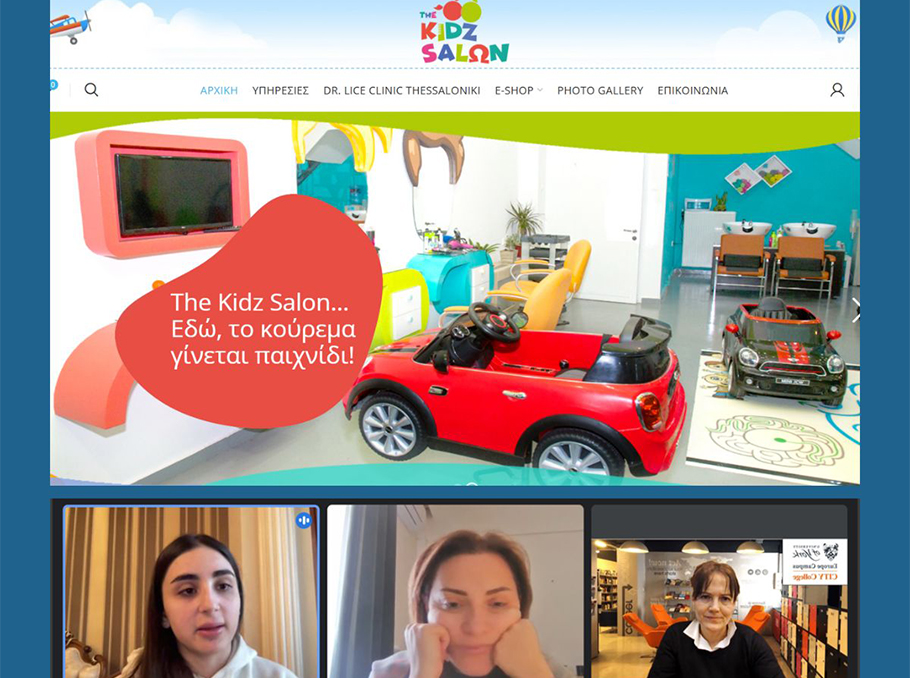
Photo: personal archive
In postgraduate level the students work with a local company to develop a strategic marketing plan to enter a new market. They use AI to develop images to visualise some of their recommendations.
In Strategic Brand Management the MBA candidates work on rebranding projects for which they can use AI to analyse data and can use GenAI to develop the proposed rebranding.
In student projects, I encourage the effective and ethical use of generative AI for content ideation and execution, but with a strict emphasis on human oversight and refinement to ensure authenticity and ethical considerations are met. Students also need to do an evaluation and self-reflection on their use of AI tools. These further fosters technical proficiency and critical thinking.
My classes are enriched with my industry experience as well as the latest research and my own publications on digital marketing and strategic digital transformation.
- With AI tools now able to generate campaigns, analyze consumer data, and even simulate focus groups, some might question the value of formal marketing education. So why does studying marketing still matter today – perhaps more than ever?
- While AI can automate many tactical aspects of marketing, it cannot replicate the strategic thinking, critical judgment, and human creativity that are the hallmarks of a well-rounded marketing professional. Formal marketing education, particularly today, matters even more because it provides the foundational theoretical frameworks and conceptual understanding that underpin effective AI utilization. Without a deep understanding of consumer psychology, market dynamics, competitive strategy, and brand building, marketers risk simply automating ineffective processes. AI is a powerful engine, but it needs a skilled driver and a clear roadmap.
The landscape of work is changing at an unprecedented pace, so education, reskilling and upskilling are more important than ever. The World Economic Forum in the Future of Jobs Report 2025 projects that by 2030 22% of current global jobs will fundamentally change, with 170 million new roles emerging and 92 million being displaced, resulting in a net increase of 78 million jobs globally. This highlights the dual challenge and opportunity of job creation alongside job displacement. AI and information processing technologies are identified as the foremost disruptors, with 86% of employers expecting them to transform their businesses by 2030. This context is critical for us, as it means navigating not just changes, but deep structural transformations in the workforce.
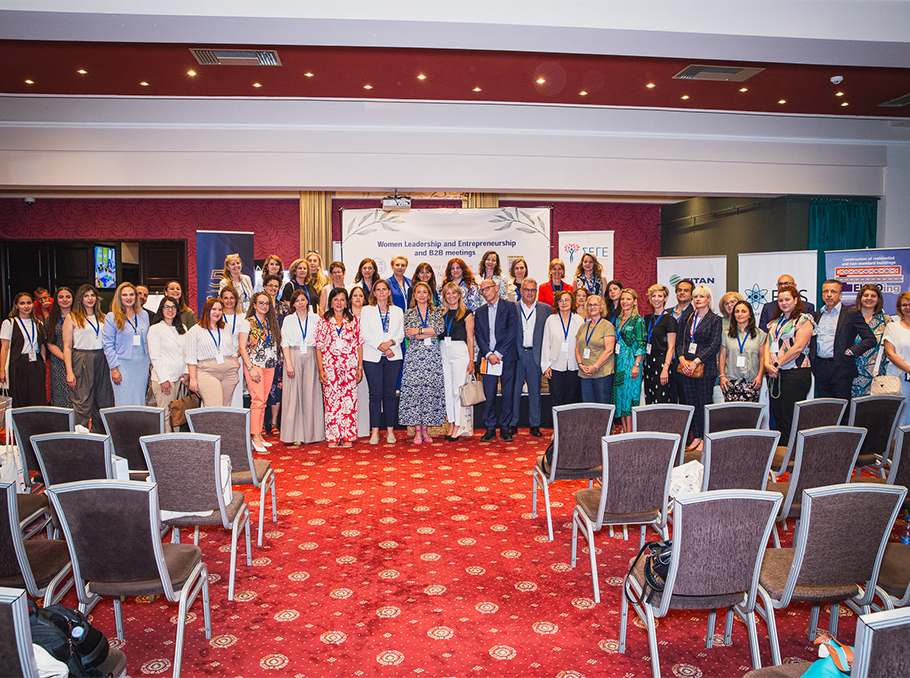
Photo: personal archive
A formal education equips individuals not just with tool proficiency, but with the adaptive mindset necessary to thrive in a constantly evolving technological landscape. It teaches them how to ask the right questions, interpret complex data, and lead teams effectively – skills that are increasingly valuable as AI takes over routine tasks. It is about becoming the architect of AI-driven strategies, not merely an operator of AI tools.
- What do you think are the key takeaways for your Executive MBA students that truly help them in their jobs – especially given all the changes AI and digital tools are bringing to marketing?
- Executive MBA students are typically seasoned professionals seeking to enhance their strategic capabilities and navigate disruption. From my classes, they primarily take away a strategic framework for integrating AI into their existing marketing operations, rather than just a superficial understanding of new tools. We focus on digital transformation, digital marketing, crisis management, Strategic brand management, the latest development in neuromarketing so technology is part of it, but the breadth and depth of knowledge goes well beyond AI. This is important for MBA candidates to be not only present ready but future proof as well.
The landscape of marketing is dynamic, exhilarating, and undeniably complex. Yet, it remains a field brimming with opportunity for those willing to embrace continuous learning and critical thinking. Whether you are a young person embarking on your career or an established professional seeking to adapt, the journey of knowledge is infinite. Institutions like University of York Europe Campus CITY, offer programs designed precisely for this new era, equipping students with the cutting-edge skills and strategic insights needed to thrive.
I wholeheartedly encourage you to explore these educational pathways, for in an AI-driven world, the human capacity for learning, creativity, and ethical leadership matters more than ever before.
Gaiane Yenokian talked to Dr. Ana Cruz

















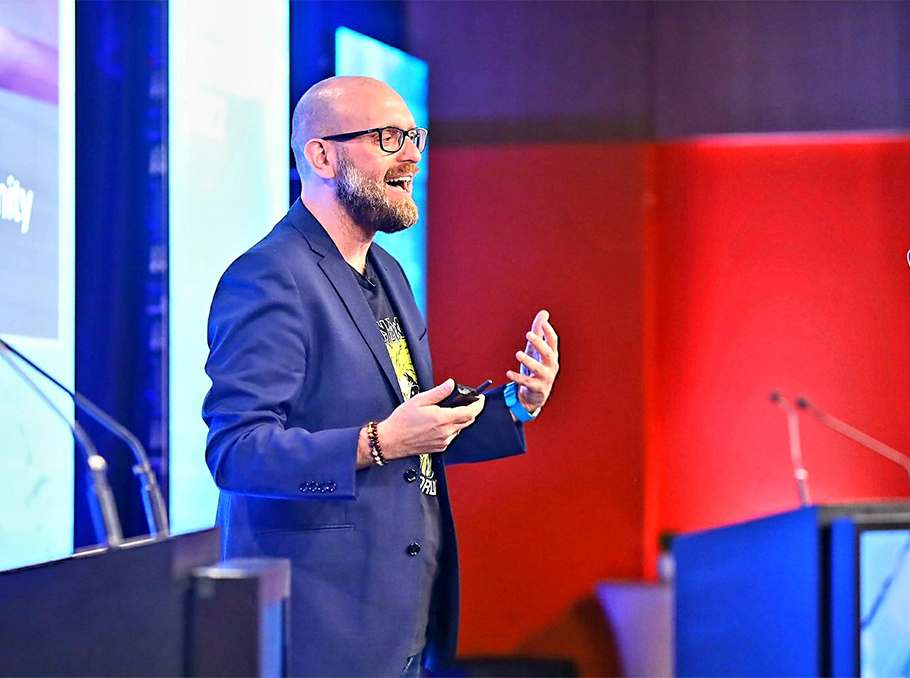
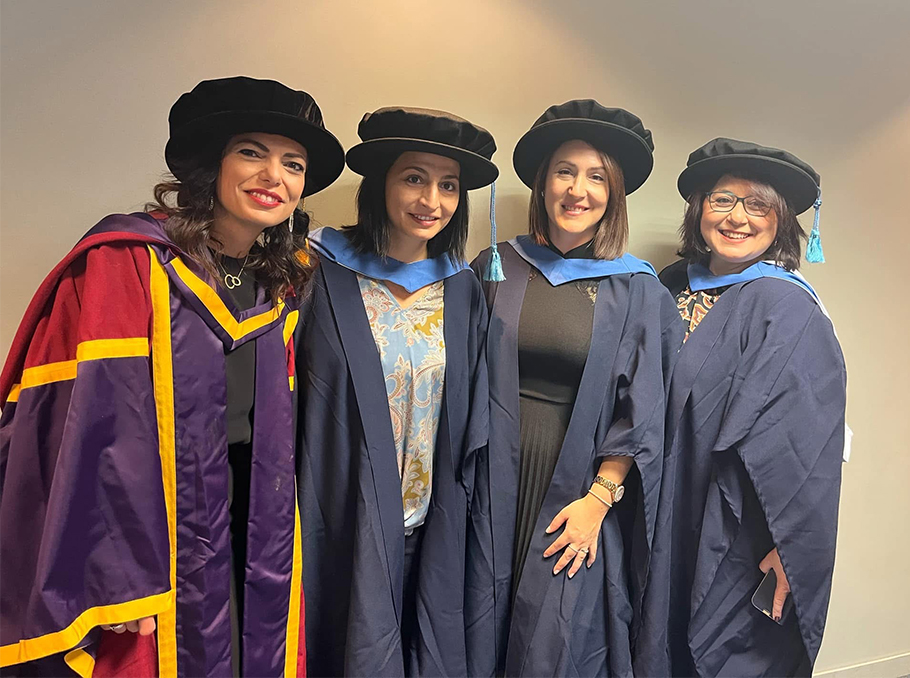
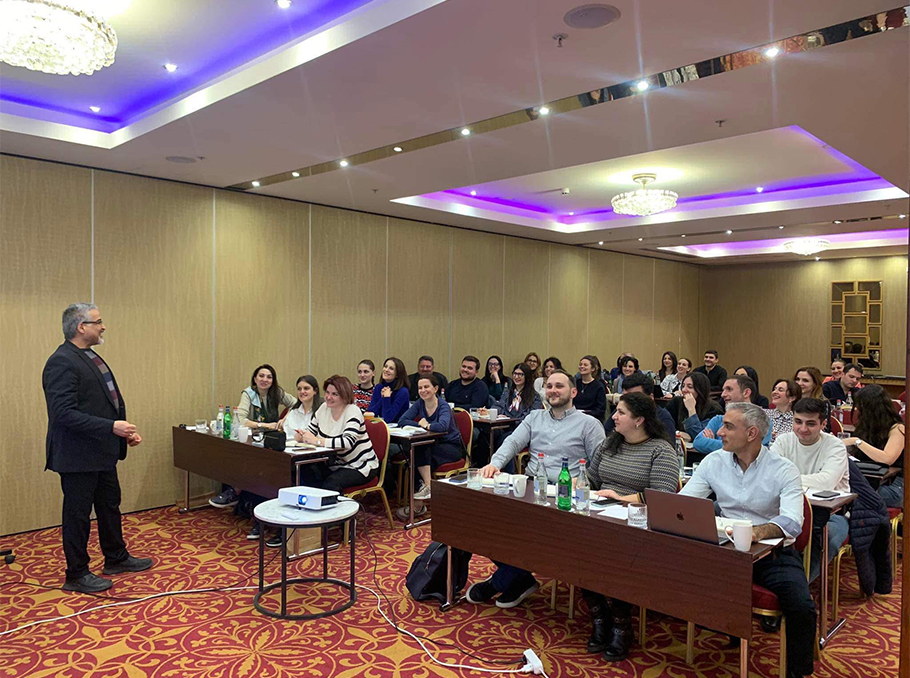








Comments
Dear visitors, You can place your opinion on the material using your Facebook account. Please, be polite and follow our simple rules: you are not allowed to make off - topic comments, place advertisements, use abusive and filthy language. The editorial staff reserves the right to moderate and delete comments in case of breach of the rules.